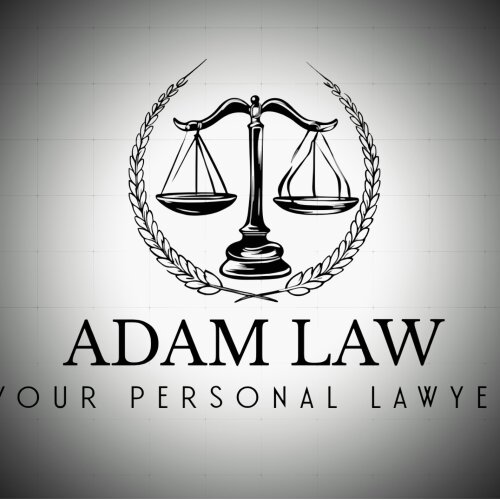
Best ADR Mediation & Arbitration Lawyers in Stockholm
Share your needs with us, get contacted by law firms.
Free. Takes 2 min.
List of the best lawyers in Stockholm, Sweden

About ADR Mediation & Arbitration Law in Stockholm, Sweden
Alternative Dispute Resolution (ADR), encompassing mediation and arbitration, is an increasingly popular method for resolving disputes outside of a traditional courtroom in Stockholm, Sweden. These processes provide a faster, often cost-effective alternative to litigation, focusing on mutual agreement and confidentiality. Stockholm is known as a global hub for arbitration, with the Arbitration Institute of the Stockholm Chamber of Commerce (SCC) playing a pivotal role in international dispute resolutions.
Why You May Need a Lawyer
There are several common situations where individuals and businesses might require legal assistance in ADR Mediation & Arbitration:
- Complex commercial disputes involving substantial financial or contractual interests.
- International disputes where parties from different legal jurisdictions are involved.
- Employment conflicts that benefit from confidentiality and a faster resolution process.
- Family disputes where a non-adversarial approach might be beneficial.
- Construction or property disputes requiring expert facilitation and resolution.
Having a specialized lawyer can help navigate the legal intricacies, represent your interests effectively, and ensure a fair and equitable resolution.
Local Laws Overview
Key aspects of local laws relevant to ADR Mediation & Arbitration in Stockholm, Sweden include:
- The Arbitration Act: Governs arbitration proceedings, ensuring they are conducted fairly and equitably.
- The Mediation Act: Provides guidelines for mediation processes, emphasizing voluntary participation and confidentiality.
- Stockholm Chamber of Commerce (SCC) Rules: Detailed procedural rules for administering arbitrations, respected in both domestic and international contexts.
- EU Regulations: Applicable EU directives influence mediation and arbitration, ensuring alignment with broader European standards.
These laws and regulations aim to create a robust and reliable framework for dispute resolution, promoting Stockholm as a premier ADR destination.
Frequently Asked Questions
1. What is the difference between mediation and arbitration?
In mediation, a neutral third party facilitates negotiation between disputing parties to help them reach a voluntary agreement. In arbitration, the arbitrator acts like a judge, making a binding decision on the dispute.
2. Are ADR decisions legally binding?
Arbitration decisions are generally legally binding and enforceable. Mediation agreements can be made legally binding if both parties agree and sign a settlement agreement.
3. How do I choose an arbitrator or mediator?
Parties typically select arbitrators or mediators who have expertise in the disputed area, often with assistance from institutions like the SCC to ensure impartiality and competence.
4. How long does the ADR process take?
It varies based on the complexity of the case, but ADR processes are generally faster than court litigation, with some disputes resolved in a matter of weeks or months.
5. What costs are involved in ADR?
Costs can include fees for the mediator or arbitrator, administrative fees from institutions like the SCC, and legal representation fees. ADR is often less costly than traditional litigation.
6. Can ADR be used in any type of dispute?
While many commercial, employment, and family disputes are suitable for ADR, some situations, like criminal matters or severe child custody battles, may not be appropriate.
7. Is confidentiality maintained in ADR proceedings?
One of the key benefits of ADR is confidentiality. Mediation is particularly focused on private and confidential discussions, while arbitration also safeguards sensitive information.
8. How enforceable are ADR agreements internationally?
Stockholm arbitral awards are widely respected and enforceable globally due to Sweden’s adherence to the New York Convention. Mediation agreements can be enforced if converted into an arbitration award.
9. What if one party does not comply with an ADR decision?
For arbitration, the court can enforce the decision. Mediation settlements, if legally binding, can also be enforced through the courts.
10. Can I switch from mediation to arbitration if mediation fails?
Yes, this is possible. Parties often agree to mediate first and, if unsuccessful, proceed to arbitration for a binding resolution.
Additional Resources
Consider reaching out to the following resources for more information or assistance related to ADR Mediation & Arbitration:
- The Arbitration Institute of the Stockholm Chamber of Commerce (SCC): Provides rules, guidance, and administration for arbitration.
- The Swedish National Board of Trade: Offers resources and information on mediation and ADR in Sweden.
- The Swedish Bar Association: Can help find specialized legal professionals in ADR.
- EU Online Dispute Resolution (ODR) Platform: Facilitates ADR processes for cross-border disputes.
Next Steps
If you need legal assistance in ADR Mediation & Arbitration, consider the following steps:
- Research: Learn about your specific legal issue and potential ADR options.
- Consult a Lawyer: Seek a lawyer specializing in ADR to understand your rights and options.
- Choose the Right Process: Decide whether mediation, arbitration, or another ADR method is suitable for your case.
- Prepare Your Case: Gather all relevant documents and evidence to support your position.
- Engage ADR Services: Contact institutions like the SCC for formal mediation or arbitration processes.
Engaging in ADR can be a strategic choice for resolving disputes efficiently and effectively. With proper legal guidance, you can navigate the process confidently and achieve a satisfactory resolution.
Lawzana helps you find the best lawyers and law firms in Stockholm through a curated and pre-screened list of qualified legal professionals. Our platform offers rankings and detailed profiles of attorneys and law firms, allowing you to compare based on practice areas, including ADR Mediation & Arbitration , experience, and client feedback.
Each profile includes a description of the firm's areas of practice, client reviews, team members and partners, year of establishment, spoken languages, office locations, contact information, social media presence, and any published articles or resources. Most firms on our platform speak English and are experienced in both local and international legal matters.
Get a quote from top-rated law firms in Stockholm, Sweden — quickly, securely, and without unnecessary hassle.
Disclaimer:
The information provided on this page is for general informational purposes only and does not constitute legal advice. While we strive to ensure the accuracy and relevance of the content, legal information may change over time, and interpretations of the law can vary. You should always consult with a qualified legal professional for advice specific to your situation.
We disclaim all liability for actions taken or not taken based on the content of this page. If you believe any information is incorrect or outdated, please contact us, and we will review and update it where appropriate.















